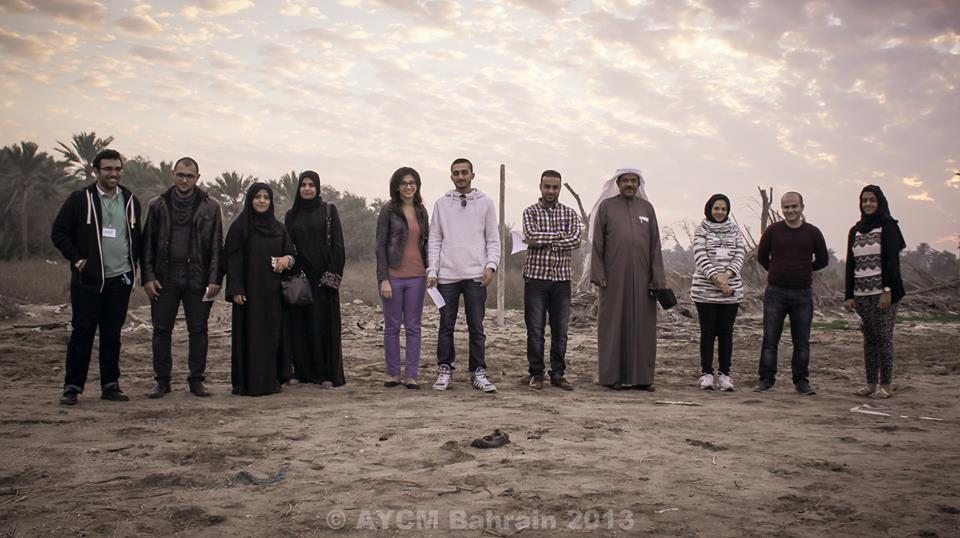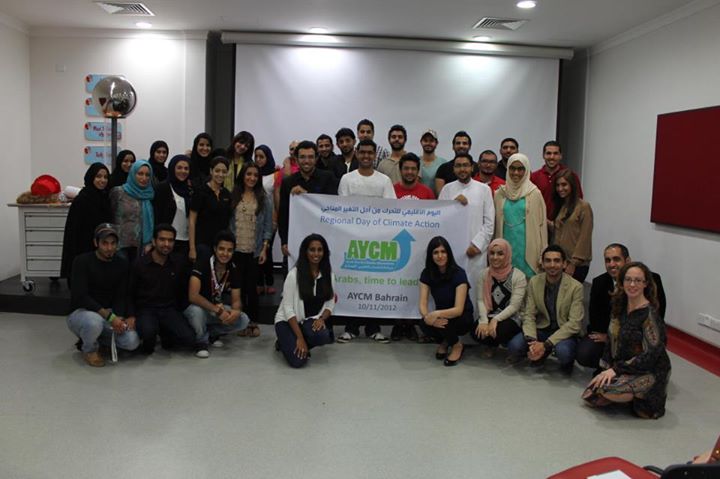
In June 2013, national coordinators of the Arab Youth Climate Movement’s Bahrain chapter, Tariq and Reem, went to the Global Power Shift summit in Istanbul, together with teams from 135 countries from around the world to share skills, ideas and strategise on how to scale-up the global climate movement.
Tariq – a biomimicry expert who founded his own Think/Do Tank- and Reem -one of the first female marine scientists in her country- had been leading the climate movement in Bahrain since the Arab Youth Climate Movement was launched in 2012, so with their participation at the 2013 GPS summit in Istanbul, they were committing once again to continue taking the climate movement forward in their country and region.
AYCM Bahrain has grown from a 2-person team in 2012 to a network of youth working on the ground on projects such as the “Citizen Scientist Program”, as well as helping to influence climate change policy in Bahrain and the Gulf region by working on a policy paper that will serve as a guide for decision makers and civil society on current issues, positions and recommendations for the Arab States.
We recently caught up with Tariq and Reem to interview them about their Power Shift plans, and were delighted to hear that the national chapter had just elected two young women to be the new AYCM Bahrain national coordinators: Ashwaq and Eman. We are therefore excited to give them the opportunity to share with the world how AYCM Bahrain is helping to shift power as part of the global climate movement:
1. Ashwaq and Eman, please introduce yourselves.
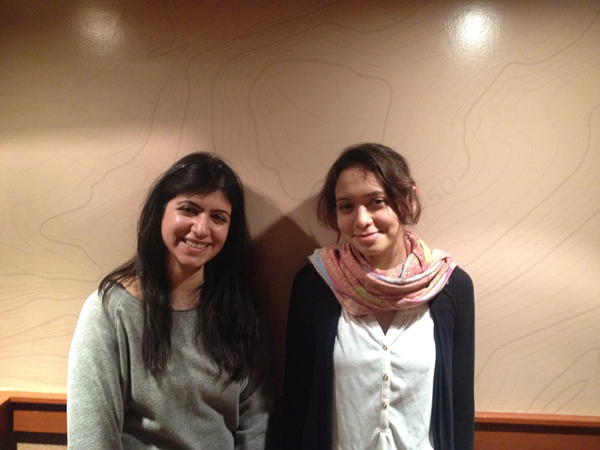
Eman (left) and Ashwaq (right) are the new national coordinators for the Arab Youth Climate Movement’s Bahrain chapter
Ashwaq Shukralla: I joined the Bahrain chapter of the Arab Youth Climate Movement (“AYCM”) in March 2013, which is my first involvement with climate change outside of reading about it in the media.
Eman Husain: I am a sustainability specialist. I have been an active member of AYCM-Bahrain since October 2012. I am a certified by the Climate Reality Project as a Climate Leader.
3. What made you interested in getting involved with climate change and the Global Power Shift Movement?
Ashwaq Shukralla: There are many reasons, but agriculture in particular is a topic that I consider to be of significance to my community and to our planet and through my involvement with AYCM Bahrain I have come to appreciate its connection with climate change. Regarding Global Power Shift, climate change is an issue where everyone’s actions can resonate locally and globally and Global Power Shift is a platform for everyone’s actions to resonate globally.
Eman Husain: I have been always interested in environmental issues and in particular climate change as it is the most serious environmental threat the earth faces. We have been witnessing the impacts of climate change and its disasterouss effects on communities, environment and the economy. Climate change is a global problem, thus it requires individuals, communities, leaders and others to collaborate in order to come up with solutions. Hence a global movement such as the Global Power Shift is needed to have bigger and more effective climate actions.
4. What are climate change related issues in your country?
One issue is that Bahrain is a water scarce country with high water demand. Agriculture in particular accounts for approximately 85% of groundwater consumption, which is the only natural supply of freshwater in Bahrain. Climate change can aggravate the effects of already erratic rainfall and seawater intrusion into the groundwater aquifers.
Another particular concern is sea level rise. Most of the coastal areas of the islands do not exceed 5 meters above current mean sea level. Bahrain’s coastal built environment supports critical infrastructure such as roads, buildings, and telecommunications, as well as extensive commercial and industrial activities. Sea level rise could potentially expose large areas of Bahrain’s built environment to inundation and increased erosion.
There are also many other climate change related issues and challenges for Bahrain to overcome both as a high per capita energy consumer and as a low-lying arid archipelago.
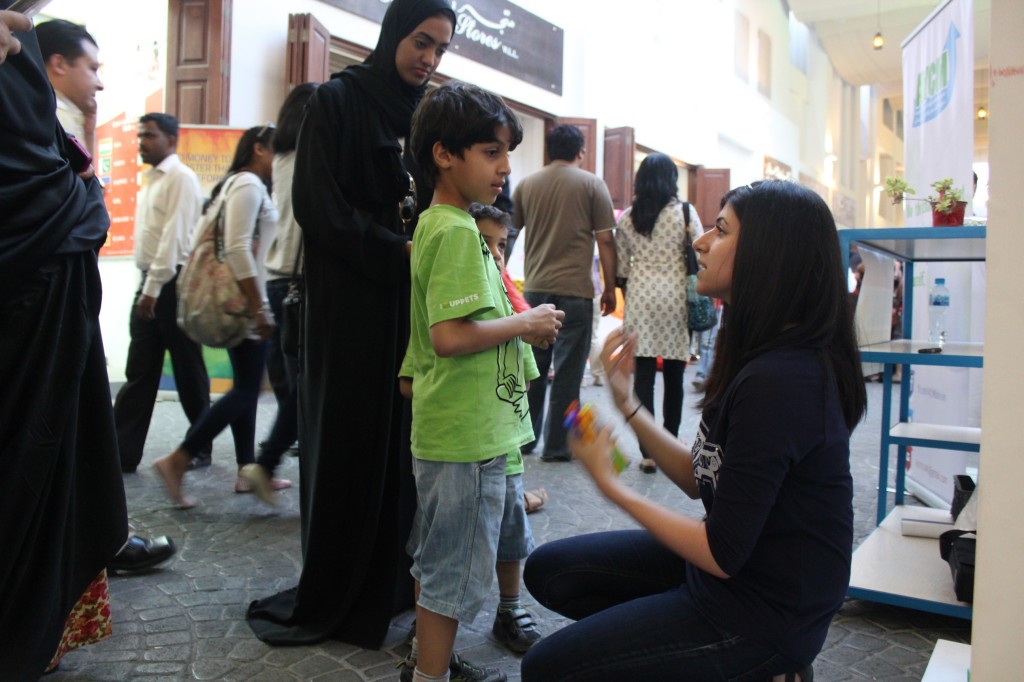
5. What is your plan for Phase 2 in Global Power Shift? Why did you decide to make it this way and how does it fit into the big picture of building a climate movement?
As part of phase 2, AYCM Bahrain’s strategy includes increasing citizen awareness about climate change in Bahrain. Capacity building and empowering youth, women and children is important to spread the message. Part of that is through engaging our community in a citizen science program that we plan to launch. The program will collect environmental data including climate change phenomena, which will feed into an online database. We also plan to conduct public workshops and are also exploring how to integrate climate change in schools and curriculums. Another part of phase 2 will be to collaborate and form a regional network with youth in the surrounding gulf countries with an aim to create a regional power shift. We have also begun to be commissioned by local authorities to take on a number of environmental consultancy projects.
6. What excites you and what makes you worry about Phase 2 and beyond?
Power shifts are new to the country, which makes it both exciting and worrying. It is a great opportunity to create and sustain momentum for change, but there is still much to learn and gain experience from about this process in order to succeed going into phase 2 and beyond.
7. What kind of support can you offer to other organisers and what support would you like to get from them?
We can offer other organisers the gulf perspective and share our experience and our solutions. We can also look to other examples in GPS that we can help complement and amplify.
We would ask for opportunities to collaborate, particularly within the region, as a stepping stone to creating a regional power shift.
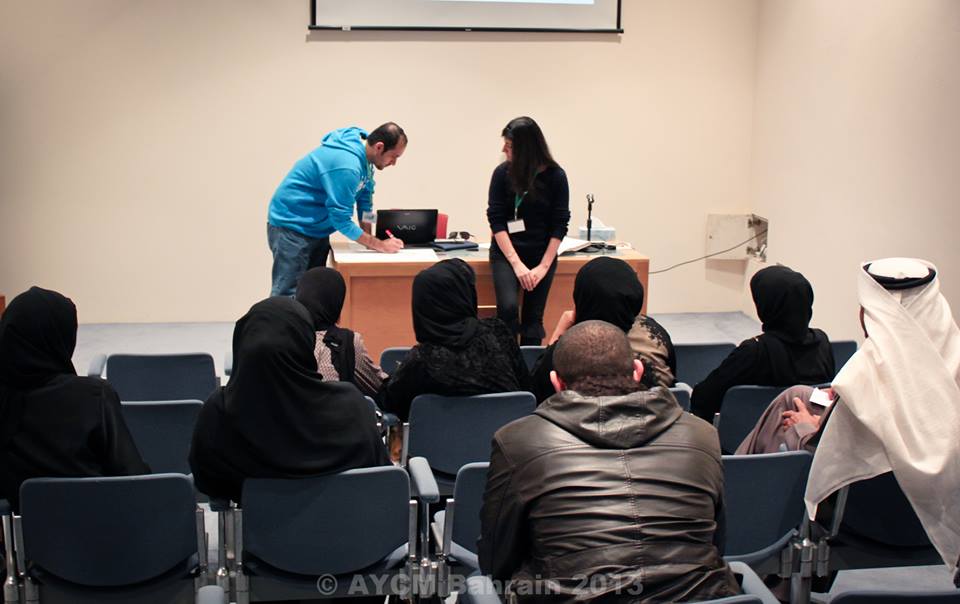
8. What is your general message that you’re sending to the GPS organisers, the climate movement and the world with your Phase 2 and with your work as climate leaders?
Phase 2 will be a tool to spread climate change awareness and engage with our communities, our youth, our leaders and our visionaries. We are here to lay the groundwork that is needed to build and sustain solutions to climate change.
